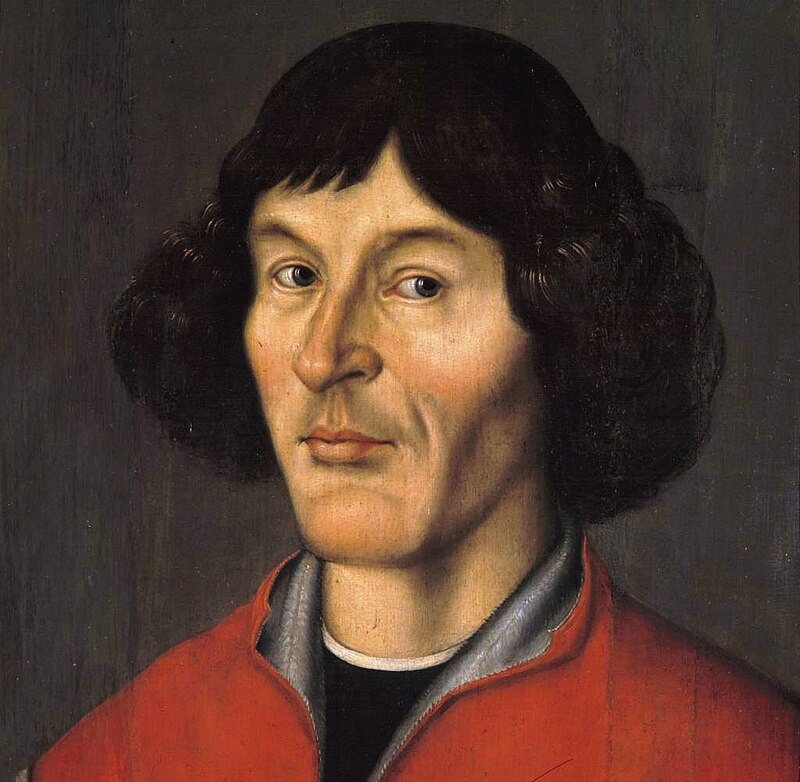To insist on a literal version of Copernicus' idea today is simply absurd.
It should be remembered that the time of Nicolaus Copernicus' life was before the era of the turbulent development of natural science, primarily as a result of the work of Galileo Galilei and Isaac Newton. Today, we must not ignore the discoveries of these later scientists. Today, we have the opportunity to understand not only the fact that our Sun is the object with the greatest mass in the Solar System, but also the physical process leading to the formation of the Sun and the entire Solar System billions of years ago. And this is where modern science has taken Copernicus' idea to the point of absurdity. A consistent application of Newton's principle of universal gravitation must irrevocably lead to the conclusion that, contrary to Copernicus' conjecture, our Sun cannot be at the centre of the Solar System. Copernicus would be absolutely right if our Sun had no planets. These do, however, exist unquestionably. So to affirm Copernicus' ideas in the light of our present-day science is absurd. In short: the claim that our Sun originated as a solitary star is absurd.
Why? Because the process of formation of a lone star in the process of cosmic cloud accretion undisturbed by any external factors leads irrevocably to the absence of any planets around the lone star so formed. The grossly inconsistent application of various traditional scientific theories, which are inconsistent with each other, has greatly ‘muddled’ our still-repeated explanation of the formation process of the Sun to this day. We can trace the process of ‘untangling this confusion’ on the example of my arduous path to guide the hitherto traditional explanations (with which ChatGPT is mainly ‘fed’) to the right track of the consistent application of Newton's universal gravitation. For only this gravity is the physical cause of star formation in the Universe. Only as a result of perturbed accretion processes can additional centres of cosmic mass arise, ‘giving birth’ to multistellar stellar systems in which part of the original mass of the cosmic cloud can form planets.
Our Solar System was formed as a two-star system.
************************
About Nicolaus Copernicus
Nicolaus Copernicus was born on 19 February 1473 in Toruń (Ger. He was the fourth and youngest child of Nicolaus Copernicus, a wealthy merchant from Kraków, and Barbara (born Lucas Watzenrode). His eldest sister was Barbara, later to become the superior of the Chełmno monastery. Brother Andrzej, like Nicolas, became a canon, younger sister Catherine married Gärtner, a Toruń merchant and alderman.
After his studies in Italy, at the end of 1503, Copernicus returned to Poland, to Warmia. He never settled permanently in Toruń again. Between 1504 and 1510, he was secretary and physician to his uncle, Lucas Watzenrode, Bishop of Warmia, and stayed mainly in Lidzbark Warmiński. He died in May 1543 in Frombork (Civitas Warmiensis).
Copernicus is best known as the creator of the heliocentric model of the Solar System and the author of De revolutionibus orbium coelestium (On the Rev olutionsof the Celestial Spheres), a work detailing his vision of the Universe. Copernicus' work triggered one of the most important revolutions in modern science. According to Copernicus' theory, the Sun is the celestial body around which all the planets, including the Earth, revolve. This discovery shattered the hitherto geocentric vision of the Universe, of which the Earth was to be the centre. Fearing a reaction from the Church, which insisted on geocentrism, Copernicus hesitated for a long time to announce his theory. It was only towards the end of his life, in 1543, that he published his work On the Revolutions of the Celestial Spheres. The Church, in accordance with the astronomer's fears, forbade both the preaching of Copernicus' view and the reading of his work for many years. However, this did not diminish Copernicus' immense contribution to modern science of the Universe.